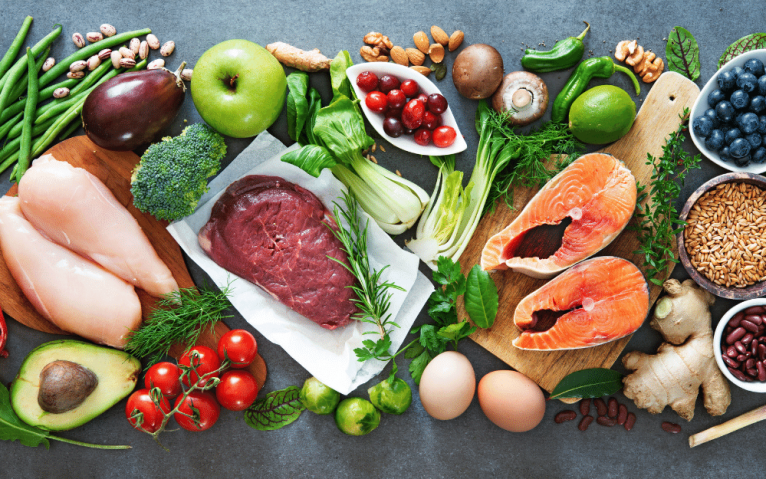After seeking alcohol addiction treatment, most people don’t think nutrition is an integral part of recovery. Alcohol detoxification can be uncomfortable, and as people go through the detox process, they can experience withdrawal symptoms like diarrhea, vomiting, and loss of appetite. Many treatment centers incorporate the alcohol withdrawal diet to help those in recovery deal with adverse symptoms.
What’s the Alcohol Withdrawal Diet?
Nutrient deficiencies can often prolong the alcohol detox process and lead to malnutrition. Additionally, substance abuse is linked to vitamin and mineral deficiencies that affect physical and mental health. When the body doesn’t have these nutrients, it cannot properly heal and can have long-lasting adverse effects.
The alcohol withdrawal diet focuses on replenishing the body of these nutrients and keeping hydration levels high to prevent adverse consequences. It’s all about incorporating healthy and nutritious foods and keeping away processed foods that can trigger cravings.
Foods to Eat
To start, it’s all about incorporating nutrient-rich foods that address some of the side effects of alcohol abuse. These foods help manage blood sugar levels, promote a healthy weight, and prevent cravings.
Electrolytes
Most people going through alcohol withdrawal will lose fluids through vomiting, excessive sweating, and diarrhea. Most detox facilities will administer fluids via an intravenous to prevent dehydration. However, they’ll also incorporate fluids with electrolytes such as:
- Gatorade
- Coconut water
- Watermelon
- Pedialyte
Vitamins
B vitamins are critical during detox. Vitamin B1 helps promote brain function and reduce brain fog episodes, fatigue, and memory problems, all side effects of alcohol withdrawal. Deficiency of vitamin B1 can lead to Wernicke-Korsakoff syndrome, a brain disorder associated with confusion, vision changes, and hallucinations. Another vitamin that helps through detox is B3 and B5 to help remove alcohol from the body. Incorporating fruits and vegetables can help fight these common nutritional deficiencies linked to alcohol consumption.
- Beef
- Liver
- Nuts
- Oats
- Oranges
- Pork
- Leafy greens
- Eggs
- Legumes
- Peas
- Salmon
- Tuna
- Chicken breast
- Shiitake mushrooms
- Whole grains
Proteins
Alcohol directly impacts the liver; proteins help restore the liver, kidneys, brain, and heart. It’s essential to manage the protein intake of recovering alcoholics. Too much protein can strain the liver and cause more permanent damage.
- Lean red meats
- Chicken
- Fish
- Eggs
- Turkey
Complex Carbs
Carbohydrates have a bad reputation; however, complex carbohydrates can help stabilize blood sugar levels, provide vitamins and fiber. These healthy foods play an essential role in promoting energy for long periods, which reduces the risk of cardiovascular disease, certain cancers, and type 2 diabetes.
- Oats
- Brown rice
- Sweet potatoes
- White potatoes
- Whole wheat bread
- Quinoa
- Kidney beans
- Whole wheat pasta
- Couscous
- Green peas
- Pumpkin
Healthy Fats
Another critical portion of the alcohol withdrawal diet is to incorporate healthy fats. These can help lower the risk of depression and reduce anxiety in people struggling with substance abuse.
- Olive oil
- Coconut oil
- Flaxseed oil
- Avocado
- Butter
- Walnuts
- Salmon
- Tahini
- Hemp seeds
- Canola oil
Foods to Avoid
Not all foods are helpful during detox and withdrawal. Some foods that provide little or no nutritional value, such as cookies, sodas, and processed foods, can intensify alcohol cravings. These foods can also promote dehydration and unfavorable side effects.
Sweets
Sugary products often contain little to no nutritional value. It’s common for the body to crave these empty calories as it goes through the detox process. Some of these foods you want to avoid are:
- Ice cream
- Candy bars
- Donuts
- Cookies
Caffeine
Some of the alcohol withdrawal symptoms, including insomnia, depression, and anxiety, can worsen with caffeine. High levels of caffeine can exacerbate these symptoms and contribute to headaches, dizziness, heart problems, and dependence. Caffeine on itself causes withdrawal symptoms and intense cravings that can make the recovering journey more unbearable.
- Coffee
- Caffeinated tea
- Sodas
- Energy drinks
- Candies
- Chocolate
Junk Food
Junk foods are high in sugars and unhealthy fats, with very little vitamins or minerals to replenish the body with valuable nutrients. Eating junk food promotes weight gain, high cholesterol, high blood pressure, depression, heart disease, and stroke.
- Potato chips
- Fast food
- Soda
- Fried foods
- Microwavable meals
The Importance of a Healthy Diet
When left unattended, malnutrition-related damage in alcoholics can have long-lasting health effects. Alcohol-related changes in the liver and pancreas can lead to problems such as electrolyte imbalances. The severe deterioration of the liver can lead to the onset of diabetes, as well as seizures.
Specifically, a deficiency of B vitamins can set the stage for nervous system malfunctions and anemia. Chronic lack of vitamin B1 could lead to Wernicke-Korsakoff syndrome development that causes progressive mental function loss, hallucinations, and disruptions.
The alcohol withdrawal diet doesn’t just help make the detox process more comfortable. But it also sets the foundation for a healthy lifestyle that could help recovering addicts achieve long-term sobriety.
Over time, a healthy diet can help offset anxiety, depression, and other psychological effects during the recovery process. Starting a balanced diet in detox and practicing healthy eating habits throughout treatment is critical for long-term recovery. Also, the mood irregularities associated with a poor diet tend to feed cravings for alcohol. When those irregularities fade away, the desire to drink can start to fade, as well.
Getting Help
While at first, it might seem insignificant, we know first-hand that the proper diet can make all the difference in alcoholism recovery. From our medical detox to our on-going alcohol addiction recovery program at Lighthouse Recovery Institute, we integrate a holistic view of treatment that involves nutritional guidance. If you or someone you know is struggling with alcohol addiction, please know help is available, and we’ll be here to help you when you’re ready.





